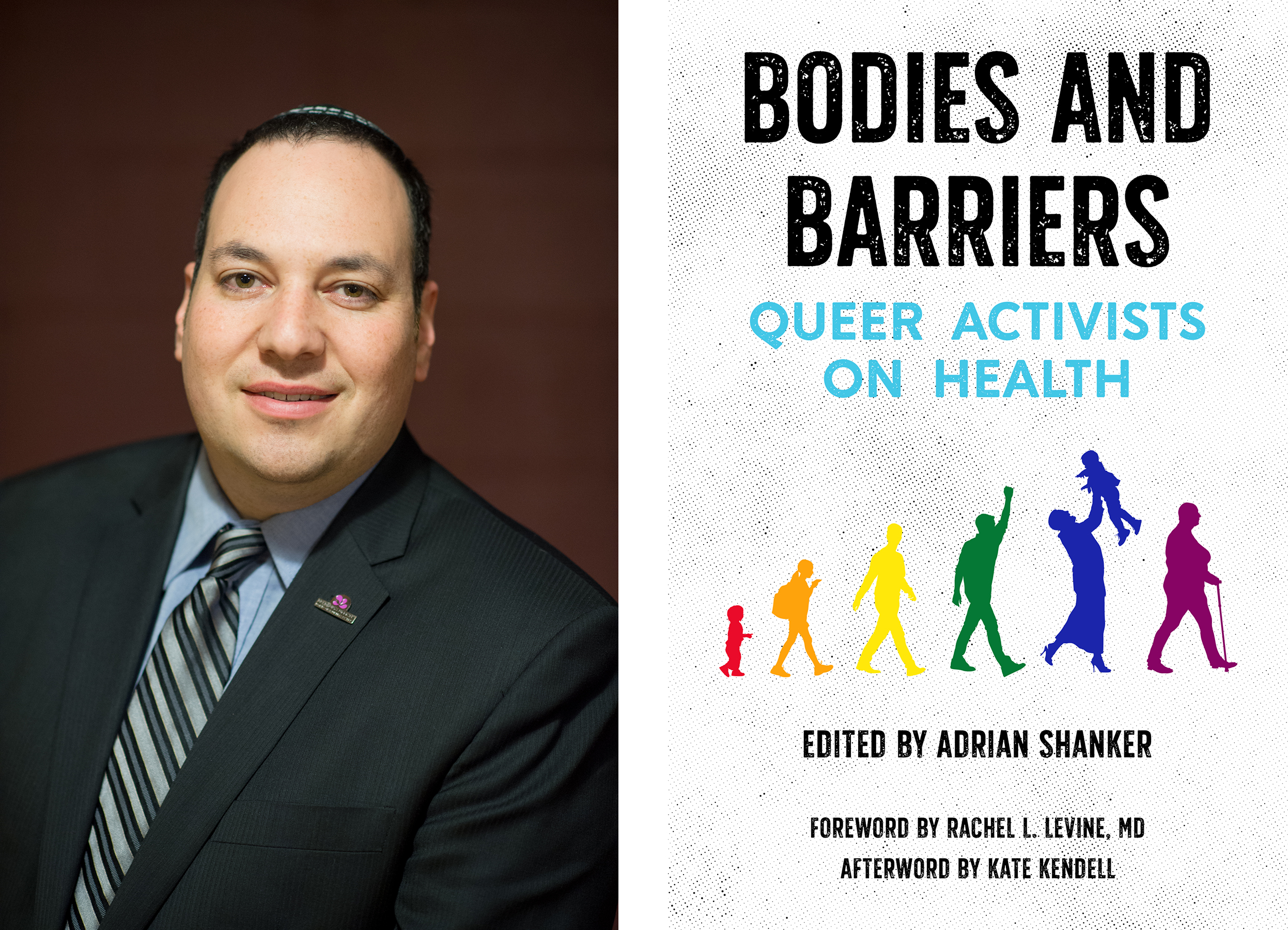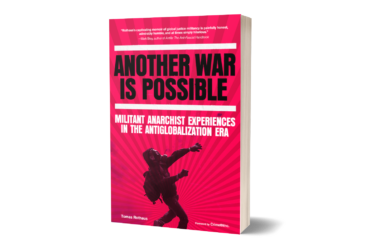By Sharon Papo
Gay City News
September 9th, 2020
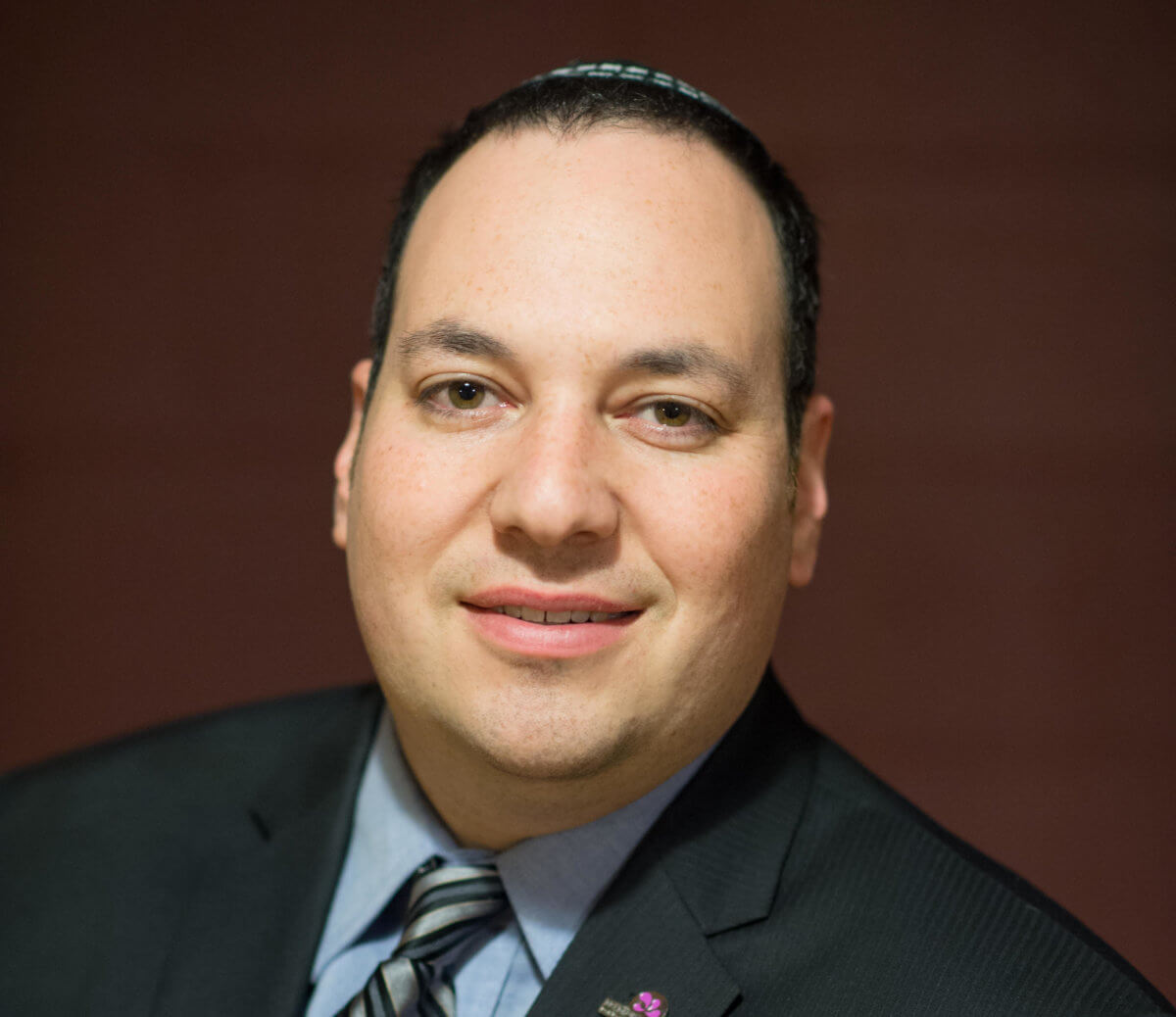
Adrian Shanker, editor of “Bodies and Barriers: Queer Activists on Health.” Courtesy of Michele Karlsberg
Sign up for our COVID-19 newsletter to stay up-to-date on the latest coronavirus news throughout New York City
The COVID-19 pandemic has placed conversations of health equity back at the forefront of our lives. The emergence of a new virus that quickly swept the world and took more than 100,000 American lives has caused many of us to think about the importance of accessing healthcare when we need it.
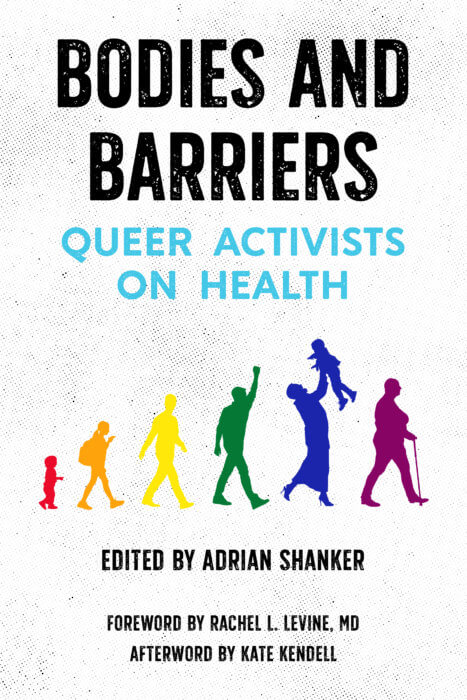
The release of a critically acclaimed new anthology, “Bodies and Barriers: Queer Activists on Health,” out now from PM Press, a Bay Area independent publisher, is timely. This book includes essays by 26 queer activists from around the world. Contributing authors write about barriers to affirming health care for LGBTQ people of all ages. From informed consent for intersex children, to social service navigation for the queer community, to caregiving concerns for LGBTQ older adults, this book is comprehensive and relevant for these scary times we are living through.
In a virtual event at the Bureau of General Services — Queer Division (bgsqd.com) on September 17 at 7 p.m., the book’s editor, Adrian Shanker, who is the executive director of the Bradbury-Sullivan LGBT Community Center in Allentown, Pennsylvania, will moderate a conversation with contributors Laura Jacobs, a trans and genderqueer psychotherapist who writes about transgender people accessing care; Liz Margolies, the founder and executive director of the National LGBT Cancer Network who writes about cancer among community members; Atticus Ranck, a health program education coordinator at the New York State Department of Health AIDS Institute who writes about addiction and recovery; and Dr. Imani Woody, the president of Mary’s House for Older Adults in Washington who writes about health and housing for LGBTQ elders.
In an afterword to “Bodies and Barriers,” Kate Kendell, who led the National Center for Lesbian Rights for 22 years, wrote:
Throughout my career, I’ve been involved with some of the LGBT movement’s greatest fights: marriage equality, nondiscrimination in the workplace, parenting rights, inclusion in sports, ending conversion therapy, protecting youth, elders, and LGBT families. The common thread that links all these issues is health and well-being. It is not possible to be a healthy, vital person if you are under assault for who you are. Precisely because so many LGBT individuals struggle with stigma, safety, acceptance, and belonging, many in our community still struggle with high rates of mental and physical health challenges.
Despite the odds, our movement for LGBT liberation has come far. In my 22 years leading the National Center for Lesbian Rights (NCLR), I had a front-row seat to our national progress. Out of nothing and in the face of hostility from our own government we built the HIV/ AIDS infrastructure in the 1980s to fight back and save our men and everyone impacted by the pandemic. When I started at the NCLR in the 1990s, LGBT parents routinely lost custody of their children as they came out of heterosexual marriages. Now, sexual orientation is not a basis for losing custody. In the early 2000s, many openly wondered if we should fight for the freedom to marry or if such a fight would be successful in their lifetimes. In 2015, we won marriage nationwide at the U.S. Supreme Court.
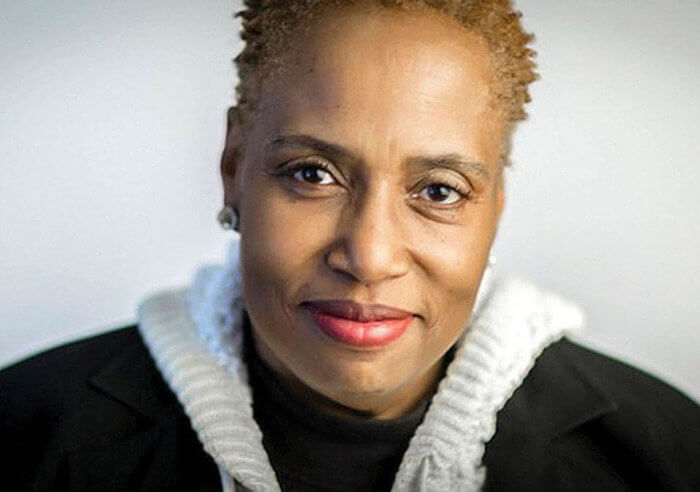
We’ve come a long way from the time when LGBT people were dying left and right from a treatable virus to witnessing some of those early AIDS activists marrying longtime partners. But the LGBT community still experiences open hostility and disregard from health care professionals, some LGBT health needs are still not covered equitably by health insurers, and policy makers still sometimes lack the political will to advocate for equitable policies for our community.
From obstetricians refusing to treat lesbians, to gay men being ridiculed for wanting a prescription for pre-exposure prophylaxis (PrEP), health care professionals can do better. Policy makers can do better. All of us can do better.
Our movement for equality, for liberation, has been breathtaking in its gains. But we still fight for our humanity, our health, and our happiness. The priority for a new generation must be the health of every one of us and the promise of a long, healthy, fully embraced life.
I recently had the opportunity to chat with the book’s editor, Adrian Shanker, about “Bodies and Barriers.”
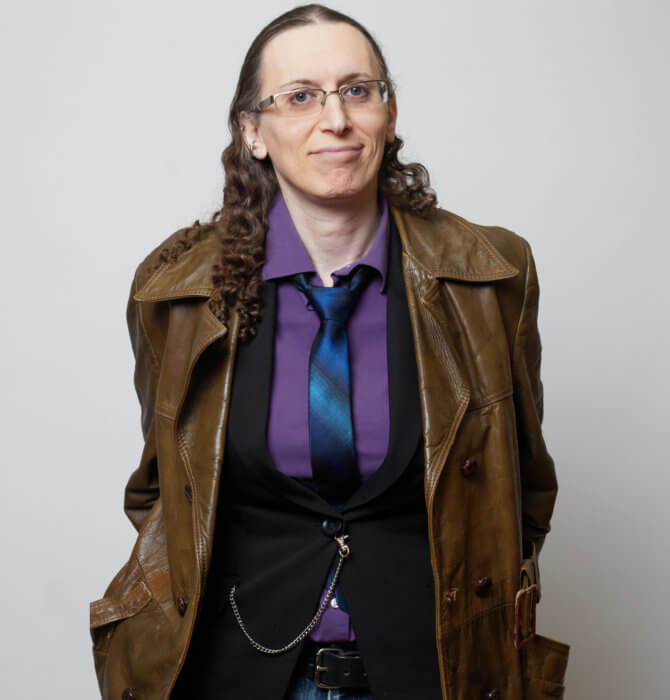
SHARON PAPO: Why was it important to you to edit this book?
ADRIAN SHANKER: The US government defines health equity
as “the attainment of the highest levels of health for all people.”
Health equity is a dream not yet realized. For LGBTQ people, many of us
have had negative experiences seeking healthcare. But the training
programs that students in health professionals receive often don’t share
our stories. As healthcare consumers, LGBTQ people’s stories need to be
heard — and we need healthcare workers and policy makers to hear them.
“Bodies and Barriers: Queer Activists on Health” weaves together diverse
stories that need to be heard.
PAPO: The book was released just as COVID-19 started
to affect us. Are there any lessons in the book that apply to this time
we are living through?
SHANKER: Obviously the book was written and edited
before COVID-19, however it is very relevant in this moment. No,
COVID-19 doesn’t somehow have better gaydar than our own community and
seek out queer people’s bodies to infect. But LGBTQ people are
absolutely more vulnerable to this virus than the majority population.
We live with increased risk factors, and we live with a system of healthcare that includes barriers to care at every step of the way. LGBT people are not more biologically inclined to be infected by COVID-19, but the social and cultural barriers in our society put us at greater risk. That’s really what this book is about — LGBTQ people telling our stories and the barriers to care we have experienced in our lifetimes.
PAPO: In addition to healthcare workers, you have said that this book is especially relevant for policy makers and activists. Tell us about that.
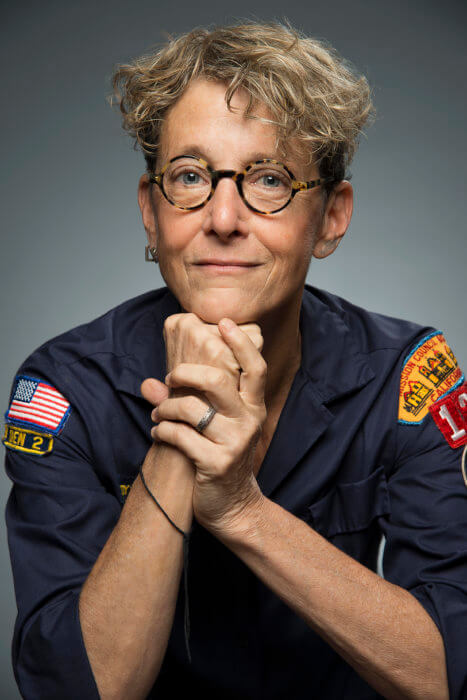
SHANKER: One of the most insidious things that has been in the news this year is that during a public health pandemic, the Trump administration has sought to remove healthcare non-discrimination protections. But let’s not forget, healthcare bias against the queer community is not a new issue. Healthcare workers and organizations denying care to queer people is not a new issue. The Trump administration is taking our rights backwards, and activists for queer rights and for health equity should all be speaking loudly to resist this! One effective way to do so is by sharing unheard stories of LGBTQ people’s experiences with the healthcare system. That’s exactly what this book is for.
PAPO: What do you hope this book helps to accomplish?
SHANKER: I hope that this book helps to empower more
LGBTQ people to share our stories of the healthcare experiences that
have left us feeling angry, scared, or dismissed. I hope that healthcare
workers will read this book and learn to provide better care for all
their patients. Ultimately, my hope is that this book is one of many
that centers the healthcare stories of LGBTQ people and helps to achieve
the dream of health equity.
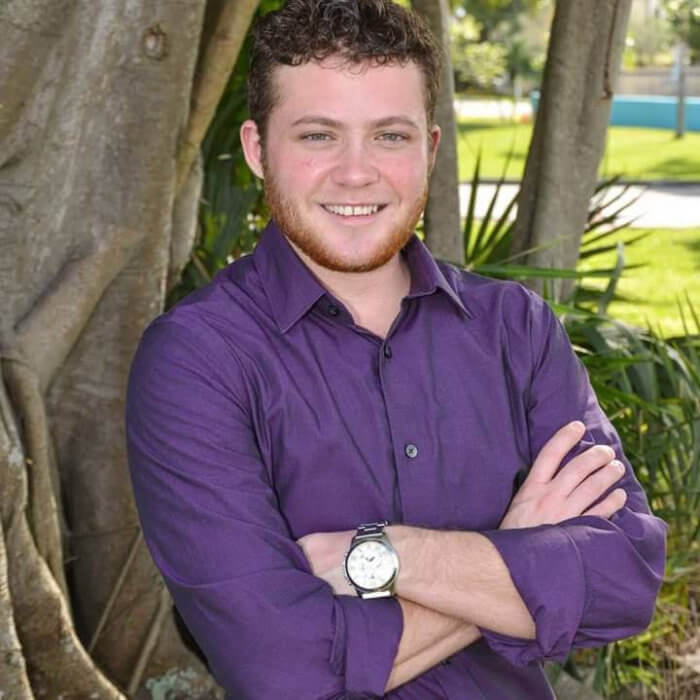
BODIES AND BARRIERS: QUEER ACTIVISTS ON HEALTH | Edited by Adrian Shanker | PM Press | $20; $8.95 e-book| pmpress.org/bodiesandbarriers
“Bodies and Barriers” | Editor Adrian Shaker in Conversation with Contributors | Bureau of General Services — Queer Division virtual event | Sep. 17, &-8:30 p.m. | tinyurl.com/yxect65e
Sharon Papo, LCSW, is the executive director of The Diversity Center in Santa Cruz County, California.
To sign up for the Gay City News email newsletter, visit gaycitynews.com/newsletter.

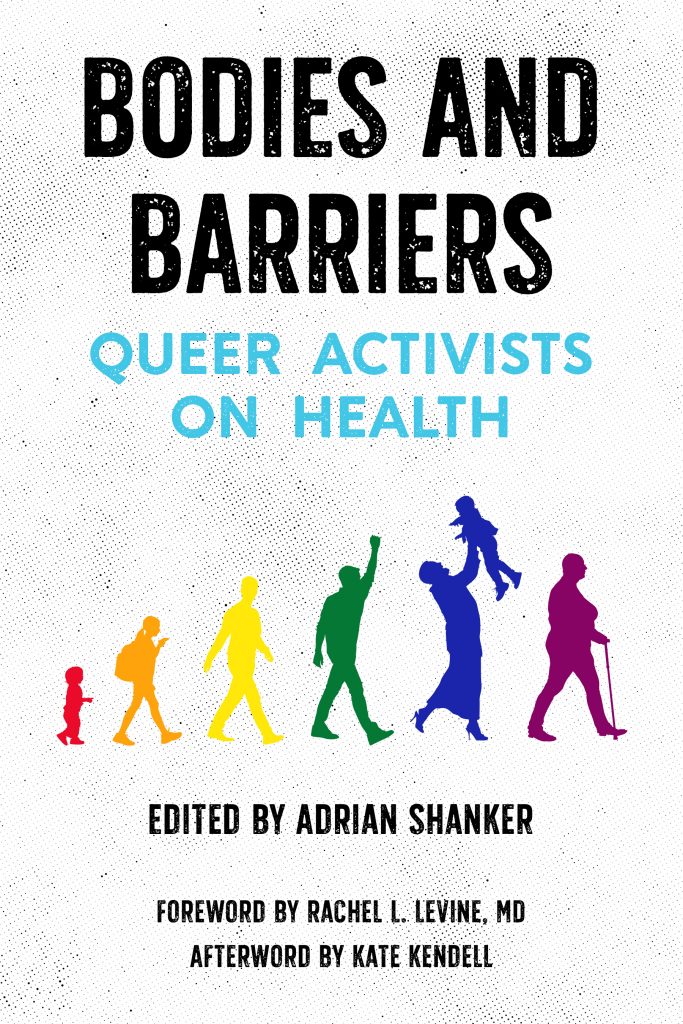
Adrian Shanker is an award-winning activist and organizer whose career has centered on advancing progress for the LGBT community. He has worked as an arts fundraiser, labor organizer, marketing manager, and served as President of Equality Pennsylvania for three years before founding Bradbury-Sullivan LGBT Community Center in Allentown, PA, where he serves as executive director. An accomplished organizer, Adrian has led numerous successful campaigns to advance LGBT progress through municipal nondiscrimination and relationship recognition laws and laws to protect LGBT youth from conversion therapy. A specialist in LGBT health policy, he has developed leading-edge health promotion campaigns to advance health equity through behavioral, clinical, and policy changes.

